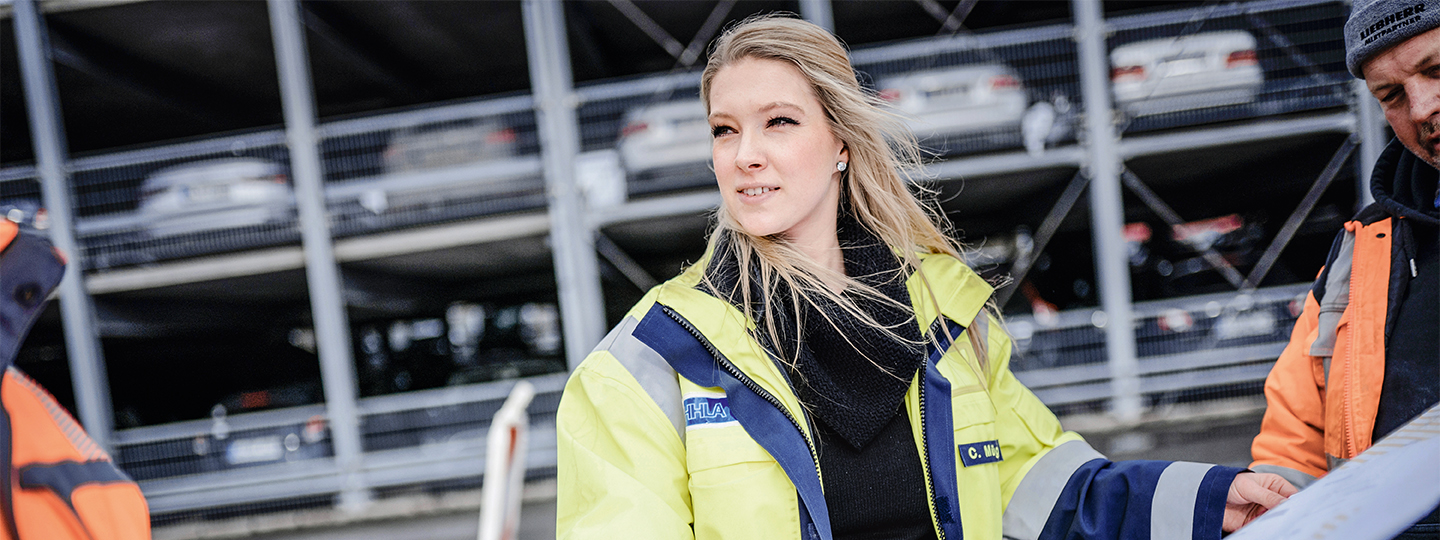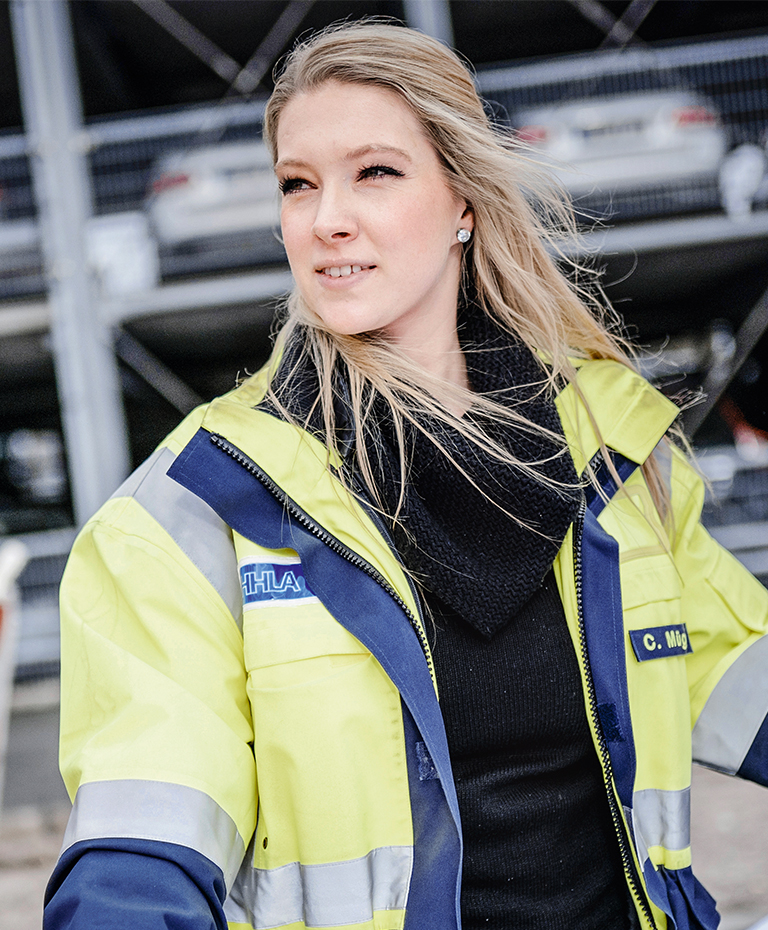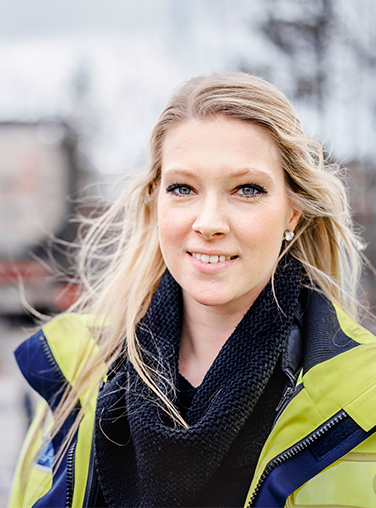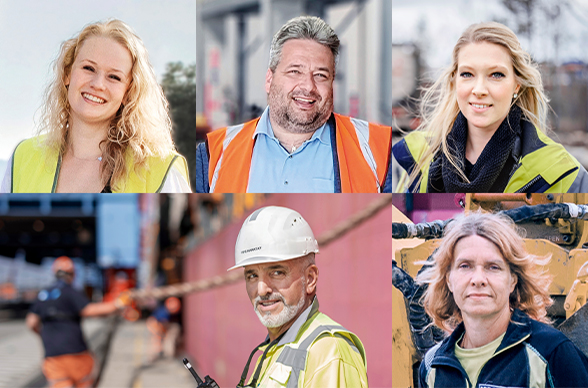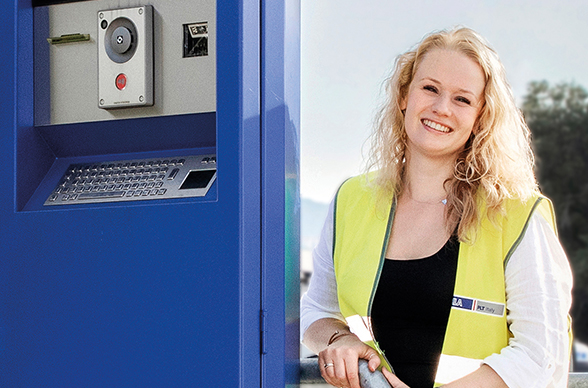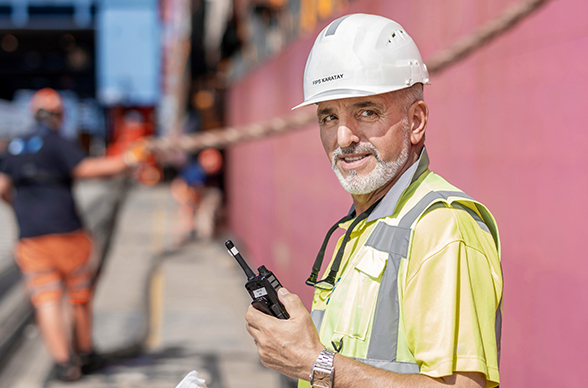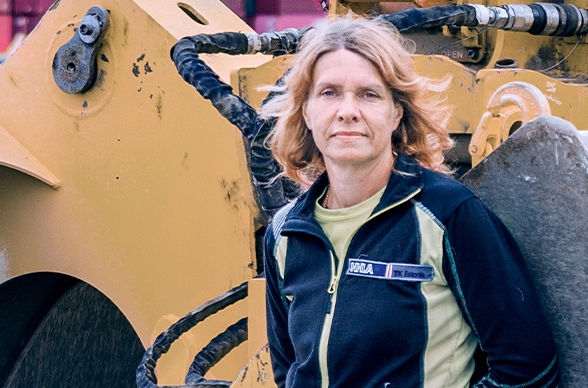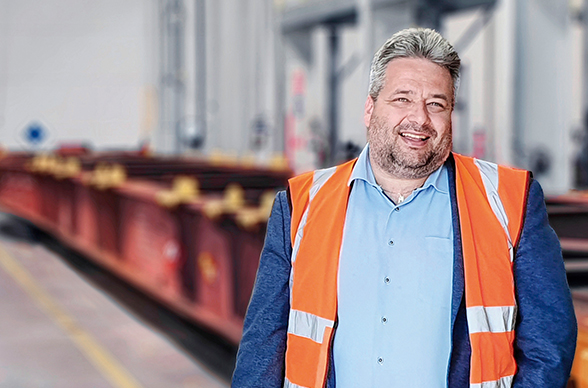30 percent of civil engineers in Germany are female. One of them is Christina Mügge, who started dreaming of working at the port with HHLA from an early age.
Raised in Altes Land within sight of the river Elbe and the Port of Hamburg, Christina Mügge knew early on that she wanted to work at the port someday – and, of course, with HHLA, since that’s the name on most of the cranes at the quays.
In 2011, shortly after completing her A levels, all it took was a single application to receive the job she had always dreamed of.
She joined HHLA as a dual-study student of Civil Engineering and got to know the work of the logistics company from the ground up while also obtaining a bachelor’s degree as a civil engineer. Afterwards, Christina Mügge also completed a master’s degree specialising in construction law – and, more impressively, while working at HHLA.
Today, as a project engineer, she mainly oversees civil engineering work at various HHLA terminals. She also has to carry out planning, for example the construction of the electric charging stations for battery-powered container transporters. The so-called AGVs used to run on diesel. This project is not the only example of how the topic of sustainability is increasingly becoming the focus of her work.
“The construction industry has a big impact on the issues of climate change and sustainability,” the engineer notes. “I see it as my responsibility to implement projects in a climate- and resource-friendly way, for example, by using materials with a better carbon footprint.”
Currently, Mügge is also involved in a working group that is investigating the effects of climate change on German sea and inland ports. Here, the German Meteorological Service and various port operators across Germany are working together to develop technical recommendations for dealing with the consequences of climate change in the future. “As the operator of several terminals in seaports, HHLA is already affected by these changes,” says Mügge.

















